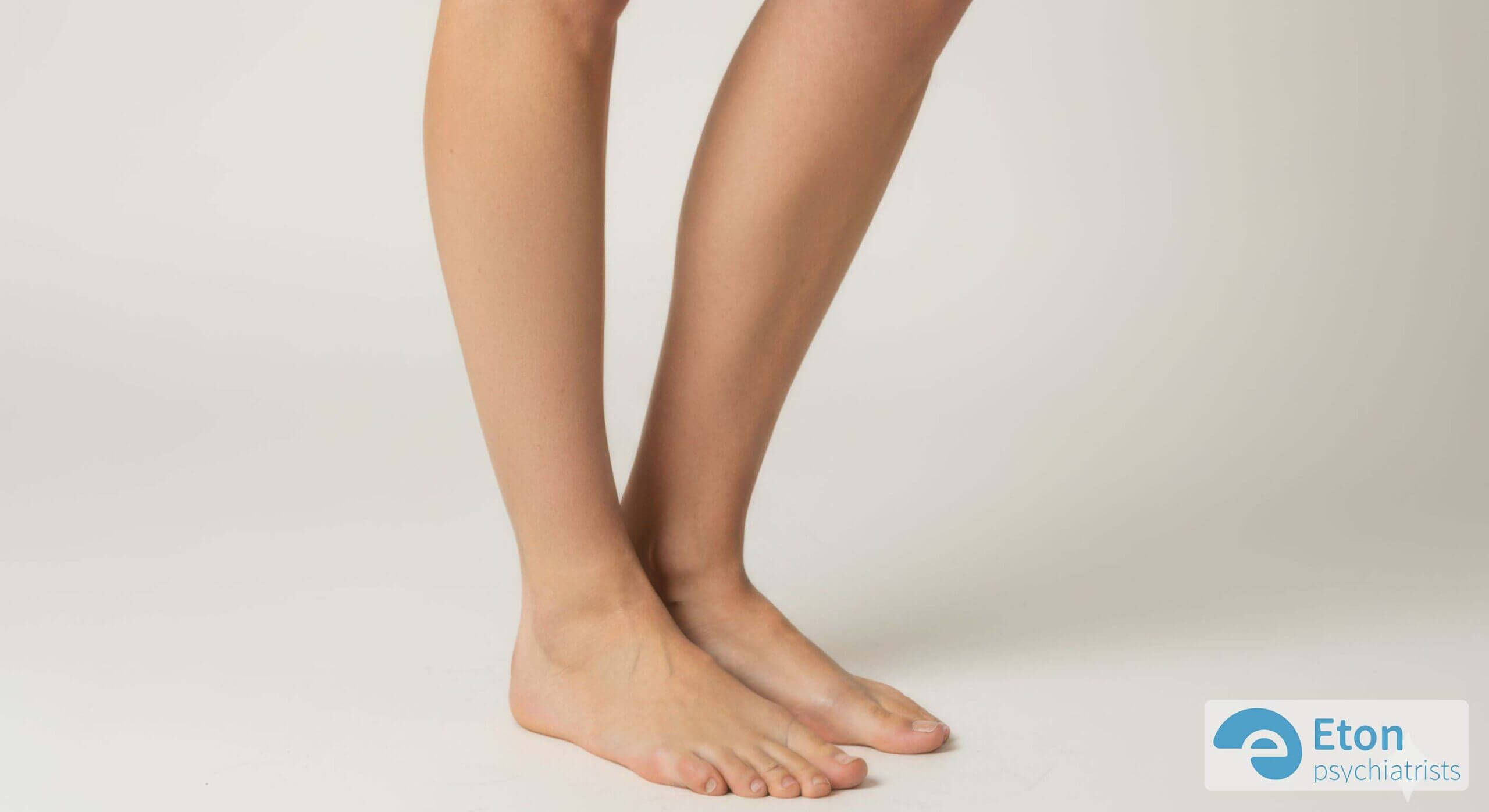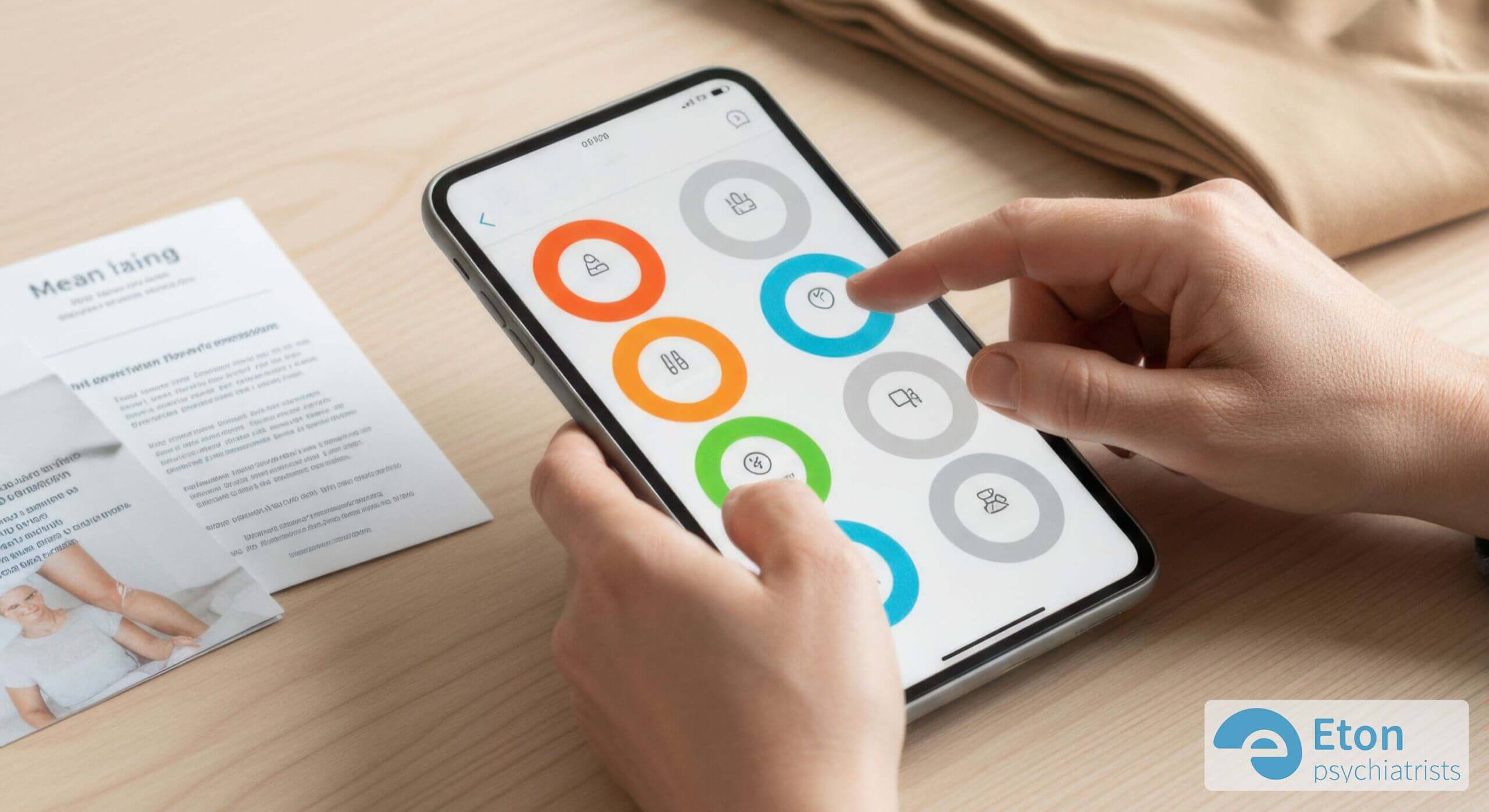
Lipedema and ADHD: Challenges, Mental Health and Treatment
Listen to the Article
For those on the go or who prefer listening, you can play the full audio version of this deep dive below.

Living with a chronic condition presents daily hurdles, but navigating life with both Lipoedema and Attention Deficit Hyperactivity Disorder (ADHD) creates a unique and often overwhelming set of challenges. Lipoedema, a chronic condition involving painful fat buildup, primarily in the legs and arms, significantly impacts physical well being. When combined with the executive function difficulties, emotional dysregulation, and sensory sensitivities characteristic of ADHD, managing both conditions can feel like a monumental task. The Lipoedema and ADHD overlap is increasingly recognised, highlighting a crucial need for integrated understanding and support that addresses both the physical and neurological aspects of this complex comorbidity. This guide explores the intricate connections, the impact on mental health, and practical strategies for managing daily life.
Table of Contents
- Understanding Lipoedema: More Than Just Weight Gain
- The Link: ADHD, Chronic Pain, and Inflammation
- Managing Lipoedema with Executive Dysfunction
- Body Image, Mental Health, and Neurodivergence
- Integrated Treatment Strategies
- Lipoedema Diagnosis UK and Treatment Challenges
- Why Trust Eton Psychiatrists?
- Summary
- Sources
- Frequently Asked Questions
Understanding Lipoedema: More Than Just Weight Gain
Lipoedema is a chronic, progressive condition characterised by the abnormal, symmetrical accumulation of adipose tissue (fat) in the lower body (buttocks, thighs, calves) and sometimes the upper arms. Crucially, it typically spares the hands and feet, often creating a distinct “cuff” effect at the wrists and ankles. Lipoedema symptoms include:

- Pain and tenderness in affected areas, often described as aching or heavy.
- Easy bruising.
- Skin that feels soft, doughy, or cool to the touch.
- Fat deposits that are disproportionate to the rest of the body and resistant to diet and exercise.
It is predominantly diagnosed in women and often begins or worsens during periods of hormonal change like puberty, pregnancy, or menopause. Lipoedema is frequently misdiagnosed as obesity or lymphedema, leading to delays in appropriate care and significant emotional distress.
The Link: ADHD, Chronic Pain, and Inflammation
Emerging research suggests connections between neurodevelopmental conditions like ADHD and systemic factors such as chronic pain and inflammation, both of which are features of Lipoedema.

- ADHD and Chronic Pain: Individuals with ADHD often report a lower pain threshold or altered pain perception. The constant effort of managing ADHD symptoms can deplete cognitive resources, making it harder to cope with the added burden of chronic physical pain from Lipoedema.
- ADHD and Inflammation: There is growing evidence linking ADHD and inflammation. Some studies suggest individuals with ADHD may have higher levels of inflammatory markers. Lipoedema itself is associated with inflammation in the affected adipose tissue. This potential shared pathway might exacerbate symptoms of both conditions.
- Sensory Sensitivities: Many people with ADHD experience sensory sensitivities. The persistent pain, tenderness, and discomfort of Lipoedema can be significantly amplified by a nervous system already prone to sensory overwhelm.
Managing Lipoedema with Executive Dysfunction
The self management required for Lipoedema (compression therapy, manual lymphatic drainage, specific exercises, anti inflammatory diet) demands significant executive function, skills often impaired in ADHD.

- Task Initiation & Follow Through: Remembering and consistently performing daily routines like putting on compression garments or doing prescribed exercises can be challenging due to difficulties initiating non-preferred tasks.
- Planning & Organisation: Planning anti inflammatory meals, scheduling numerous medical appointments, and managing treatment protocols requires strong organisational skills.
- Time Management: Allocating sufficient time for treatments like manual lymphatic drainage or compression wrapping can be difficult with ADHD related time blindness.
- Emotional Regulation: Coping with the frustration of a chronic condition, treatment adherence challenges, and physical discomfort requires emotional resilience, which can be strained by ADHD’s emotional dysregulation.
Strategies like using visual timers, simplifying routines, setting multiple reminders, body doubling for tasks, and breaking down care steps into smaller actions can be crucial adaptations.
Body Image, Mental Health, and Neurodivergence
Living with Lipoedema often has a profound impact on body image and self esteem, contributing to anxiety and depression. When combined with ADHD, these mental health challenges can be amplified.
- ADHD and Body Image: Individuals with ADHD may already struggle with interoception (awareness of internal body signals) and emotional regulation, making it harder to process negative feelings about their body related to Lipoedema. Impulsivity might also contribute to disordered eating patterns in some individuals.
- Rejection Sensitive Dysphoria (RSD): A common trait in ADHD, RSD involves intense emotional pain in response to perceived criticism or rejection. Negative comments or societal judgment about body shape related to Lipoedema can be particularly devastating.
- Increased Risk of Mental Health Conditions: Both Lipoedema and ADHD independently increase the risk of anxiety and depression. The combination creates a significant cumulative burden on mental well being.
Seeking mental health support from professionals who understand both chronic illness and neurodiversity is vital.
Integrated Treatment Strategies
Effective management requires a holistic approach that addresses both conditions:
- ADHD Treatment: Optimising ADHD management through medication, therapy (CBT), and coaching can improve executive function, making it easier to adhere to Lipoedema care plans.
- Lipoedema Management: Consistent use of conservative treatments (compression, MLD, exercise, anti inflammatory diet) is key. Seeking specialists knowledgeable about Lipoedema is crucial.
- Pain Management: Exploring strategies with healthcare providers to manage chronic pain, considering ADHD related pain perception differences.
- Mental Health Support: Therapy focusing on body image, coping with chronic illness, and managing anxiety/depression within a neurodiversity affirming framework.
- Occupational Therapy: Can provide practical strategies for managing daily routines, energy conservation, and adapting tasks.
- Peer Support: Connecting with others who share similar experiences (both Lipoedema and ADHD communities) can reduce isolation and provide practical tips.
Lipoedema Diagnosis UK and Treatment Challenges
Obtaining a Lipoedema diagnosis UK can be challenging due to lack of awareness among some healthcare professionals. Diagnosis is typically clinical, based on patient history and physical examination by a knowledgeable doctor (often a vascular specialist, dermatologist, or GP with special interest). While conservative Lipoedema treatment NHS options like compression therapy may be available, specialised treatments like Lipoedema specific liposuction are often not funded on the NHS and require private care.
For individuals with co occurring ADHD, clearly documenting both conditions is important when seeking support or accommodations related to either Lipoedema or ADHD.
Why Trust Eton Psychiatrists?
At Eton Psychiatrists, we specialise in the diagnosis and management of ADHD in adults. While we do not treat Lipoedema directly, we understand the significant impact co occurring physical health conditions can have on mental well being and ADHD management. Our comprehensive ADHD assessments consider the whole person, including physical health challenges. We provide evidence based ADHD treatment and support strategies that can improve executive function and emotional regulation, empowering individuals to better manage all aspects of their lives, including complex chronic conditions like Lipoedema.
Summary
- The Overlap: Lipoedema (a painful fat disorder) and ADHD (a neurodevelopmental condition) often co-occur, creating complex challenges due to shared factors like inflammation, chronic pain impact, and executive function difficulties.
- Lipoedema Basics: Characterised by symmetrical, painful fat accumulation (mainly legs/arms, sparing feet/hands), resistant to diet/exercise, often misdiagnosed.
- ADHD Impact: Executive dysfunction (planning, task initiation, time management) makes adhering to Lipoedema self care routines (compression, MLD, diet) significantly harder. Chronic pain and sensory issues can be amplified.
- Mental Health Burden: The combination significantly increases risks for anxiety, depression, and poor body image, potentially exacerbated by ADHD traits like emotional dysregulation and RSD.
- Integrated Approach Needed: Effective management requires treating ADHD to improve executive function, alongside consistent Lipoedema care, pain management, mental health support, and adaptive strategies.
- UK Context: Lipoedema diagnosis can be difficult; NHS treatment focuses on conservative measures, while specialised surgery is often private. Documenting both conditions is key for support.
Sources
Frequently Asked Questions
Is there a known link between Lipoedema and ADHD?
While direct causation isn’t established, there’s growing recognition of an overlap. Potential links include shared inflammatory pathways, the impact of chronic pain on ADHD symptoms (and vice versa), and the significant executive function required to manage Lipoedema, which is challenging for those with ADHD. More research is needed.
How can ADHD make managing Lipoedema harder?
ADHD’s executive function challenges make it difficult to consistently follow Lipoedema management routines (e.g., remembering compression, planning meals, scheduling appointments). Emotional dysregulation can make coping with chronic pain and body image issues harder. Sensory sensitivities might amplify Lipoedema pain.
Can treating ADHD help my Lipoedema?
Treating ADHD (e.g., with medication or therapy) won’t directly treat Lipoedema’s physical mechanisms. However, improving ADHD symptoms like focus, organisation, and task initiation can significantly enhance your ability to consistently manage Lipoedema self care (diet, compression, exercise), potentially improving outcomes and quality of life.
Where can I get a Lipoedema diagnosis in the UK?
Start with your GP. Diagnosis requires a clinical examination by a doctor knowledgeable about the condition. This might be your GP, or they may refer you to a specialist like a vascular surgeon, dermatologist, or lymphoedema service, depending on local pathways. Organisations like Lipoedema UK offer resources and lists of specialists.



